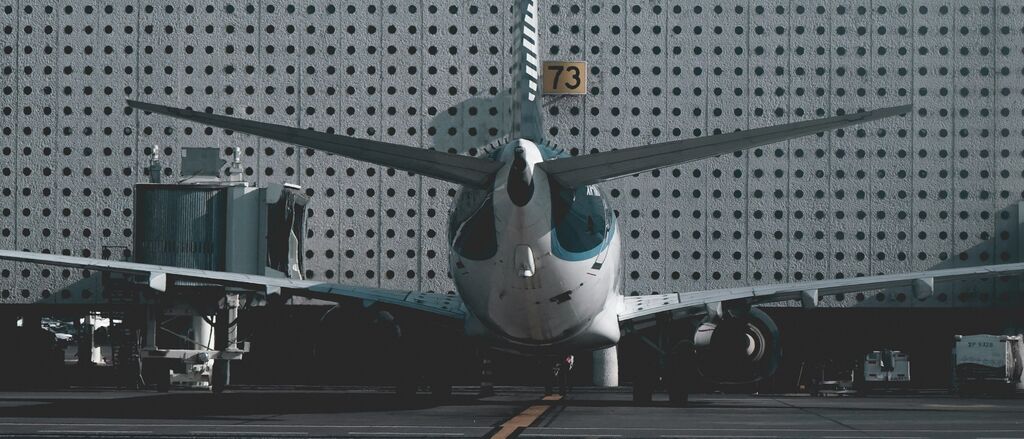
HELP! The airline rejected my compensation claim…
Wednesday, April 30, 2025
Following are the most common reasons airlines use to reject your claim (and *SPOILER* they are not always legitimate)
#1 ATC restrictions
“We are sorry to inform you that you are not owed compensation because your flight was delayed or cancelled due to ATC restrictions.”
ATC restrictions are one of the most common grounds that airlines use to refuse to pay your compensation. Even though it could very well be that the flight was delayed or cancelled because of ATC restrictions, this argument is often used by airlines without the flight actually being disrupted by such restrictions.
What are ATC restrictions?
Each flight departs and arrives at a certain time. This is called a CTOT. ATC (“Air Traffic Control”) is what keeps all the traffic in the air going smoothly and without accidents. The people responsible for this are called air traffic controllers and they coordinate traffic in the air.
Sometimes, there are weather conditions (think fog or storms) or strikes, which prevent your flight from departing or arriving at their (allocated) time slot. So when there are ATC restrictions, it means the air traffic controllers have to limit the number of flights that can take off or land, which can lead to delays or cancellations.
So when are ATC restrictions not an extraordinary circumstance?
Unfortunately, there is no exclusive answer to this question and needs to be assessed case by case. However, airlines often use ATC restrictions as some kind of cover-up for issues that are actually the airline’s own responsibility. For example, the airline might blame a delay on ATC restrictions when in reality, the aircraft or crew wasn’t ready to depart on time. In other words, ATC restrictions are not always the result of extraordinary circumstances and airlines often use this reason to refuse to pay your compensation.
If you are not sure whether your flight was delayed or cancelled due to ATC restrictions, submit your flight via our free Claim Calculator and let our aviation experts check it for you!
#2 Security reasons
“We are sorry to inform you that compensation is not due because your flight was delayed/cancelled for security reasons.”
Another reason used by airlines to refuse to pay your compensation, are security reasons. When travelling by plane, unexpected security risks sometimes come to surface (you can think of unattended luggage or a mandatory inspection of the airplane), resulting in your flight being delayed or even cancelled. Even though this can be a serious reason for your journey to be disrupted, airlines tend to use this reason solely to reject your compensation claim - regardless of whether the circumstances truly qualify as extraordinary.
So when are security reasons not an extraordinary circumstance?
Like with ATC restrictions, it is not easy to say when there is an actual security risk at hand. When your flight is disrupted, you can always try and ask the airport or airline crew what is going on. For example, if they tell you it was a technical issue, but later the airline denies compensation by claiming it was due to security risks, it’s reasonable to start asking questions.
#3 Late incoming craft arrival
“We are sorry to inform you that compensation is not due because your flight was delayed/cancelled because of the late arrival of the previous flight.”
Lastly, airlines often use the delay of the previous flight as a reason to refuse to pay your compensation. When your flight is scheduled in the early morning, it is usually the first flight of the day. You might notice that when you land, there are people waiting at the gate ready to board the same airplane you just arrived on. This is common practice in the airline industry. So, if your flight arrives late, it probably sounds logical that the same plane’s departure will also be delayed—especially considering the aircraft needs to be cleaned, (re)fueled, and prepped first.
So when is the delay of the previous flight not an extraordinary circumstance?
Again (annoying we know!), it is not easy to say when the previous flight actually caused your flight to be disrupted. Here, it might also be wise to try and ask the airport or airline crew for some additional information. In many cases, passengers accept the explanation without challenge when the airline refuses to pay their compensation. But if the delay of the previous flight was due to something within the airline’s control—like technical problems—then it may not count as an extraordinary circumstance, and you could still be entitled to compensation.
Am I entitled to compensation for the delayed or cancelled flight?
As mentioned, this will always depend on the specifics of your case and therefore needs to be examined individually. We recommend you to check your eligibility for compensation using our free Claim Calculator! Our experts will examine your claim and check who is at fault. If the analysis shows that your disruption happened due to extraordinary circumstances, we will close your file free of charge. We only charge fees once we manage to win you your compensation from the airline as we work on a “no win, no fee” basis!



Did you like this content ?
Thanks you made our day!
Therapy is expensive - help us be better!
Well received, thanks!